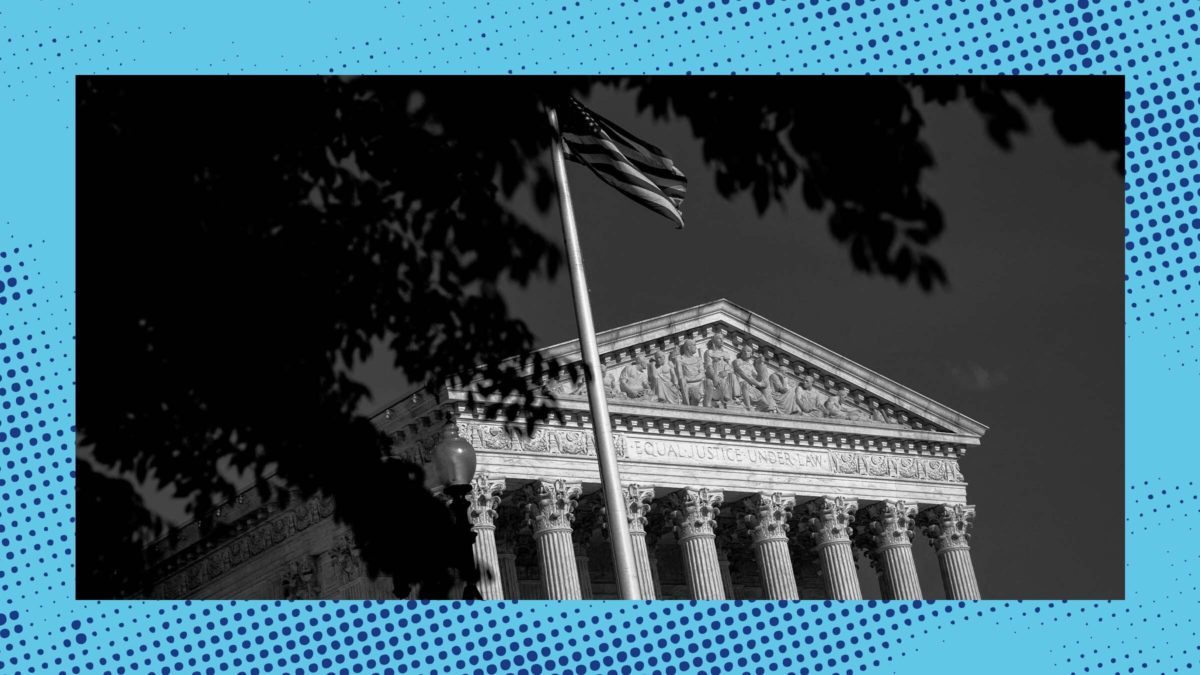On December 3, 2016, police arrested Christopher Dominguez for robbing the Medicine Shoppe Pharmacy in Raton, a small town of about 6,000 people in northern New Mexico. A federal prosecutor eventually connected that robbery to a similar one in Cheyenne, Wyoming, and charged Dominguez with multiple counts of robbery and carjacking for the purposes of drug trafficking.
At first, Dominguez pleaded not guilty. After learning how many years he’d face if he went to trial, however, he changed his mind. Dominguez’s lawyer and the prosecutor began plea negotiations in November 2018, and agreed on a deal that would require him to serve 28 years in prison.
On December 20, Dominguez signed a standard agreement stating that he was knowingly entering a guilty plea and waiving his right to trial. At a hearing the next day, the trial judge engaged in the mandatory back-and-forth that is supposed to ensure the person being sentenced is making an informed decision. The judge asked Dominguez to confirm that he was satisfied with his attorney’s advice, that he understood the agreement’s terms, and that he was signing voluntarily. Each time, Dominguez said yes.
That same day, however, was a landmark day for criminal justice reform: Congress passed the First Step Act, the first piece of major reform legislation in over a decade. (The law officially took effect the next day, after President Donald Trump signed it.) Among other things, the First Step Act gave federal judges discretion to bypass the harsh mandatory minimum sentences imposed by the tough-on-crime laws of the 1980s. It did away with “stacking” provisions that required 25-year minimums for certain gun- and drug-related charges, and got rid of the requirement that sentences for multiple offenses be served consecutively.
For Dominguez, who was charged with multiple counts of “stackable” crimes, the First Step Act was a game-changer—if only his lawyer had told him about it. Instead, the lawyer told Dominguez that if he went to trial, he would face a minimum of 60 years. In reality, as a result of the First Step Act, he would face a minimum 27-year sentence. Dominguez’s lawyer admitted later that he knew nothing of the law, which Congress had been debating for months, and didn’t research how it impacted Dominguez until after the plea hearing was over.
In 1970, the Court held in Brady v. United States that for a plea bargain to be valid, the choice to enter into it must be “knowing” and “intelligent.” American Bar Association standards require that criminal defense lawyers remain up to date on laws that may affect their client’s options. By not advising him about a looming high-profile shift in sentencing law applicable to his case, Dominguez’s lawyer failed spectacularly. Later, the lawyer admitted that he would not have recommended the plea deal had he known about the First Step Act’s impact.
Dominguez asked to withdraw his guilty plea, but the trial judge was unmoved, stating that Dominguez was not entitled to “clairvoyant or perfect assistance” of counsel, “and certainly not assistance based on 20/20 hindsight.” A three-judge panel on the Tenth Circuit Court of Appeals upheld the lawyer’s performance as constitutionally adequate, particularly in light of the “strong presumption of verity” afforded to Dominguez’s declarations in open court. Last week, the U.S. Supreme Court denied Dominguez’s petition for review, bringing his legal journey to a close. His earliest possible release date is February 11, 2041.
Judge Carlos Lucero, appointed by President Bill Clinton, dissented from the Tenth Circuit’s ruling, arguing that Dominguez had presented adequate evidence of his lawyer’s subpar performance and should have been allowed to withdraw his plea. “A defendant whose counsel fails to provide even a moderately accurate picture of what penalties a guilty plea would avoid cannot make an informed pleading decision,” he wrote.
The court’s decision to lock Dominguez into his deal is part of an overburdened criminal legal system that depends heavily on plea deals in order to function. (As Lucero put it in dissent, plea bargaining “is the criminal justice system.”) Although the right to a fair trial in criminal matters is protected by the Sixth Amendment, a shockingly low number of people take advantage of this right. In federal criminal court, 97 percent of charges are resolved through plea deals. People charged with crimes in state court, where 94 percent of charges are resolved by plea deal, don’t fare much better.
Prosecutors enjoy the upper hand throughout the negotiation process. They can, for example, offer vastly divergent sentences before and during trial, creating a so-called “trial penalty” for those who take their chances. (Dominguez was wary of this possibility, and testified that he took the deal because he thought it took a decades-long mandatory minimum off the table.) Judges generally rubber-stamp plea agreements, making little effort to ensure meaningful compliance with Brady. In Dominguez’s trial, the judge asked him if he understood his agreement’s terms, but made no mention of the First Step Act. The Tenth Circuit’s acceptance of this half-assed inquiry guts the meaning of “knowing” and “intelligent.”
The churn of plea agreements is a central part of the mass incarceration machine. If everyone charged with a crime exercised their right to a trial, the legal system would be overwhelmed, unable to try and convict all the people caught up in it—at least, not without violating the right to a speedy trial, too. Decisions like the Tenth Circuit’s in Dominguez make it a little harder for people to free themselves from the plea bargain conveyer belt. And even when someone decides to take a case to trial, courts are happy to find ways to keep their doors shut.

